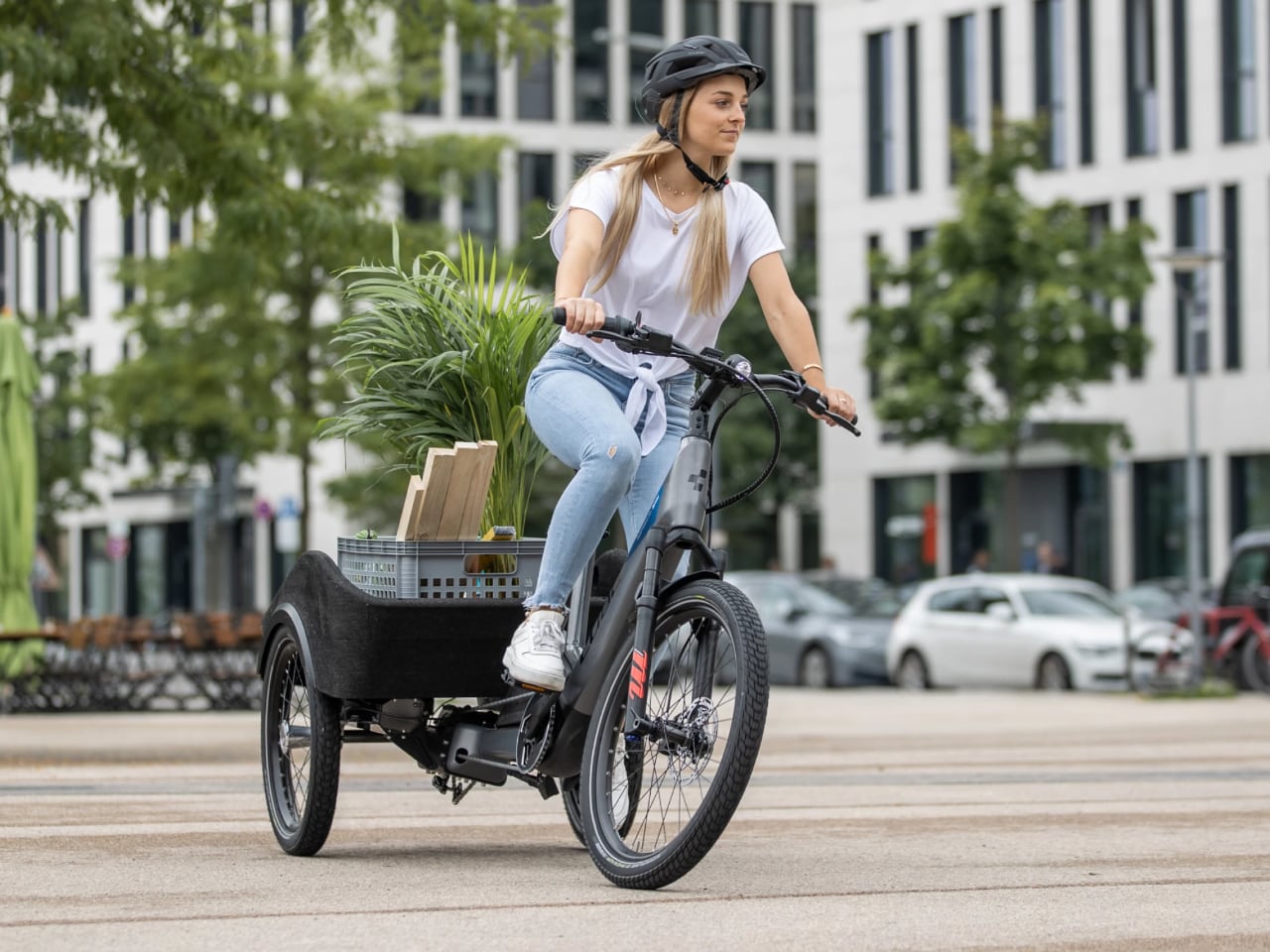
Urban cargo transport has always meant compromise. You get capacity but lose agility, or you get maneuverability but sacrifice load capability. Cube’s Trike Flatbed Hybrid 750 eliminates that trade-off entirely with a tilting rear mechanism that keeps the front wheel responsive while the cargo platform stays stable. This isn’t just another cargo bike with a basket attached. It’s a purpose-built three-wheeler that handles like a regular bike despite carrying up to 60 kilograms of whatever your city life demands.
Designer: Cube
The design philosophy centers on one compelling idea: the flatbed as blank canvas. That open platform invites customization in ways traditional cargo bikes with fixed containers never could. Coffee cart entrepreneurs, mobile vendors, small business owners, and urban families all see something different when they look at that 60kg-capacity deck. Some see a pop-up retail space. Others see a week’s worth of groceries. The platform doesn’t dictate use cases. It adapts to them.
Tilting Technology That Preserves Natural Handling
Most three-wheeled cargo bikes feel exactly like what they are: vehicles optimized for stability at the expense of cornering agility. You turn the handlebars and the entire rig leans as one cumbersome unit, reminding you constantly that you’re piloting something fundamentally different from a bicycle.
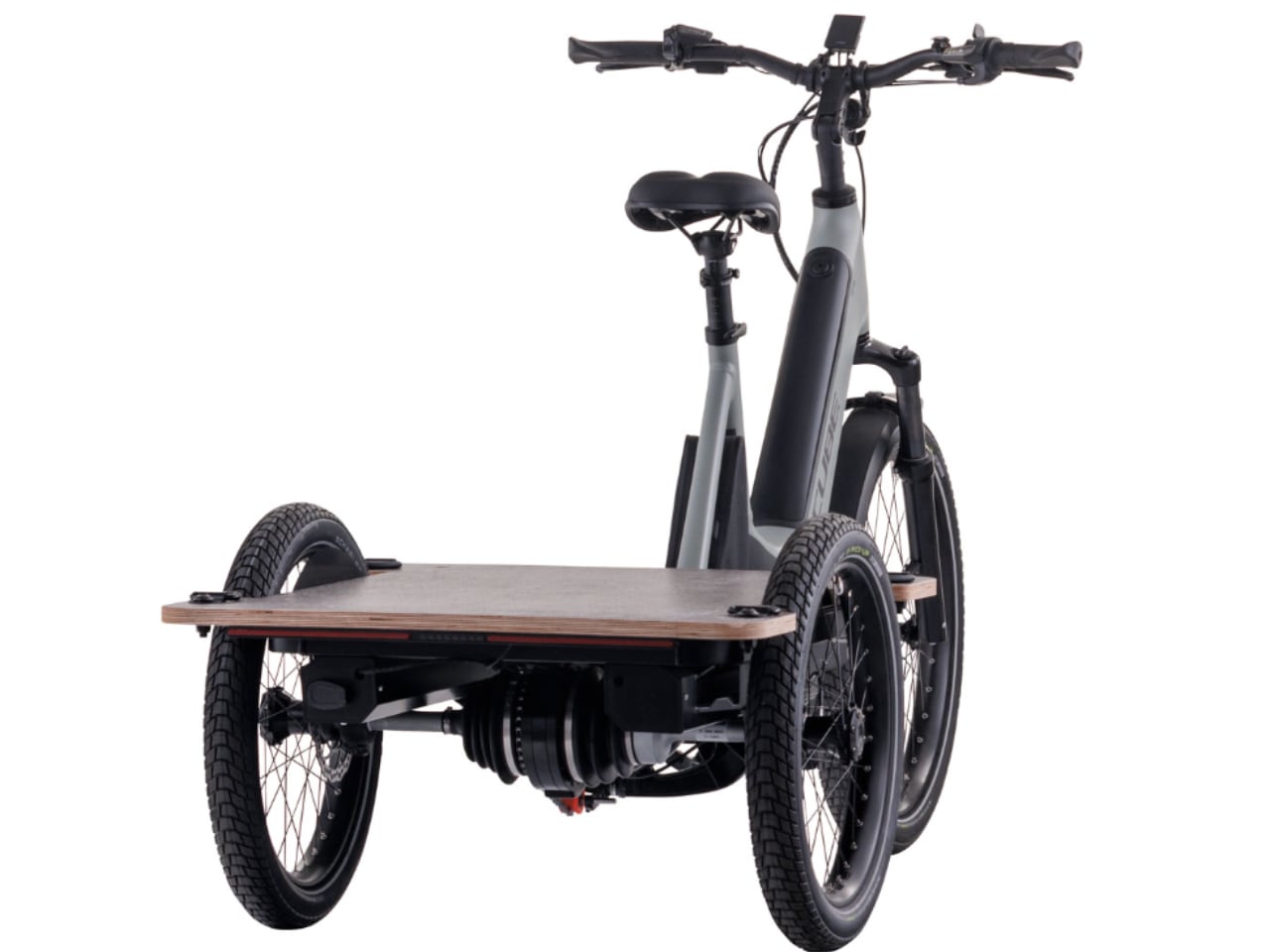
The Flatbed Hybrid 750 solves this with rear tilting that decouples the cargo load from the front steering geometry. When you lean into a corner, the front wheel responds with the natural feedback and precision of a standard bike. The rear platform stays level, keeping your cargo stable while you maintain the intuitive handling that makes cycling feel effortless.
It’s the kind of mechanical solution that feels obvious once you experience it, yet took genuine engineering thought to implement correctly. The short wheelbase amplifies this advantage, giving you tight turning radius and city-friendly parking capability that larger cargo solutions simply can’t match.
Power System, Frame Construction, and Material Intelligence
Cube specified the Bosch Cargo Line motor with 85Nm of torque paired with a 750Wh PowerTube battery. This isn’t a standard e-bike motor adapted for cargo duty. It’s purpose-built for moving weight through city streets, up inclines, and across the stop-and-go rhythm of urban traffic.
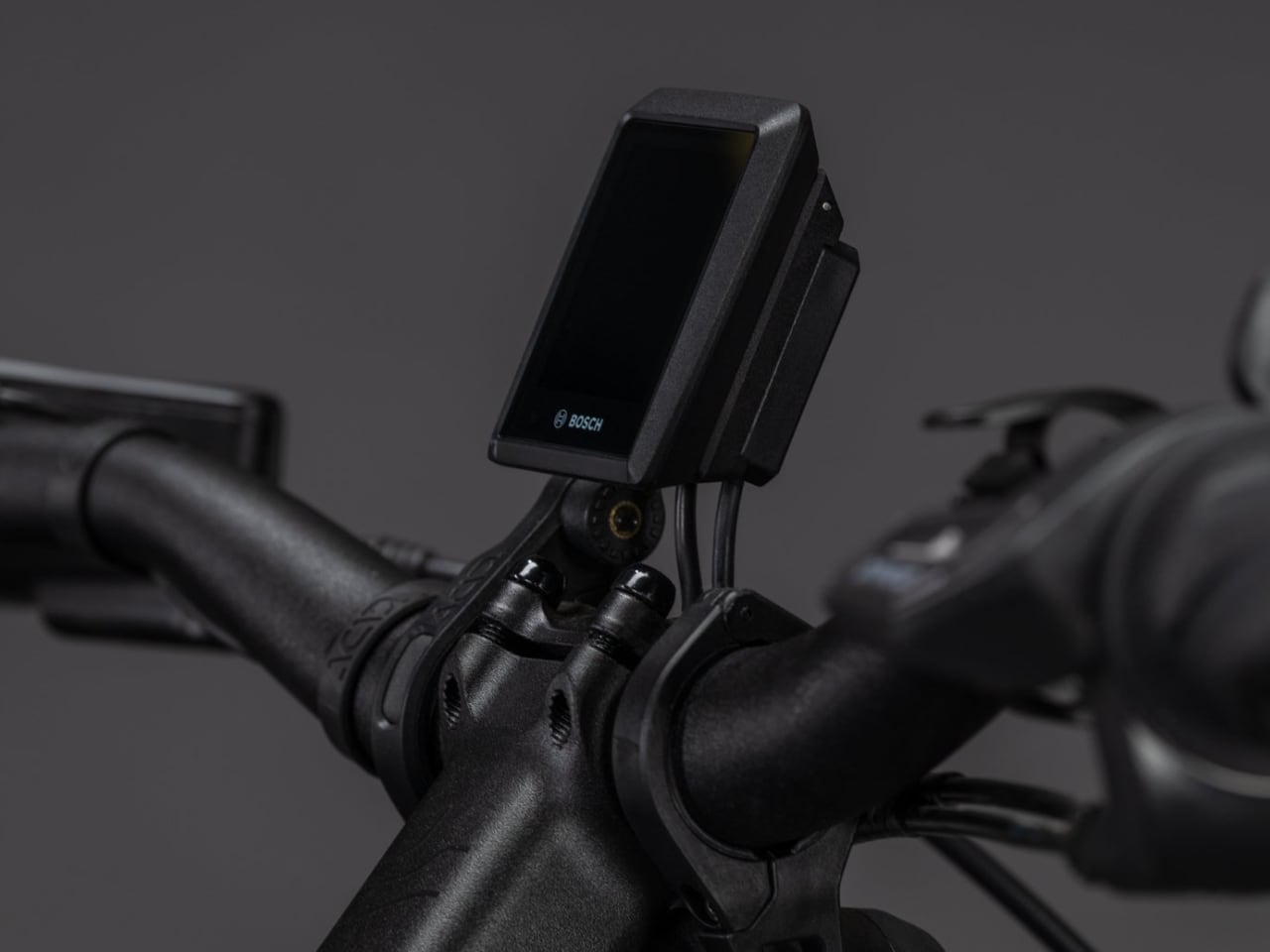
The capacity handles extended routes or full workdays without range anxiety creeping in. The Bosch Kiox 300 display integrates cleanly into the cockpit, giving you ride data and battery status without visual clutter. LED remote keeps controls accessible without forcing your hands off the grips.
The frame uses aluminum Superlite construction to balance the competing demands of cargo capacity and manageable weight. At 65 kilograms for the complete bike, it’s substantial but not absurd. The maximum system weight reaches 220 kilograms, accounting for rider and cargo together. That’s real utility capacity without requiring forklift-grade construction.
Critical frame components use aluminum gravity casting, an advanced manufacturing process that ensures structural strength where it matters most while maintaining the clean lines that define modern industrial design. The Comfort Ride Geometry tunes frame angles and dimensions specifically for stability and rider comfort across long sessions or rough city surfaces. This isn’t aggressive sport geometry adapted for cargo use. It’s ground-up design for urban utility. The step-through frame accommodates riders from 1.60 meters to 1.90 meters (roughly 5’2″ to 6’2″), with adjustable stem and seat making one size genuinely fit most users.
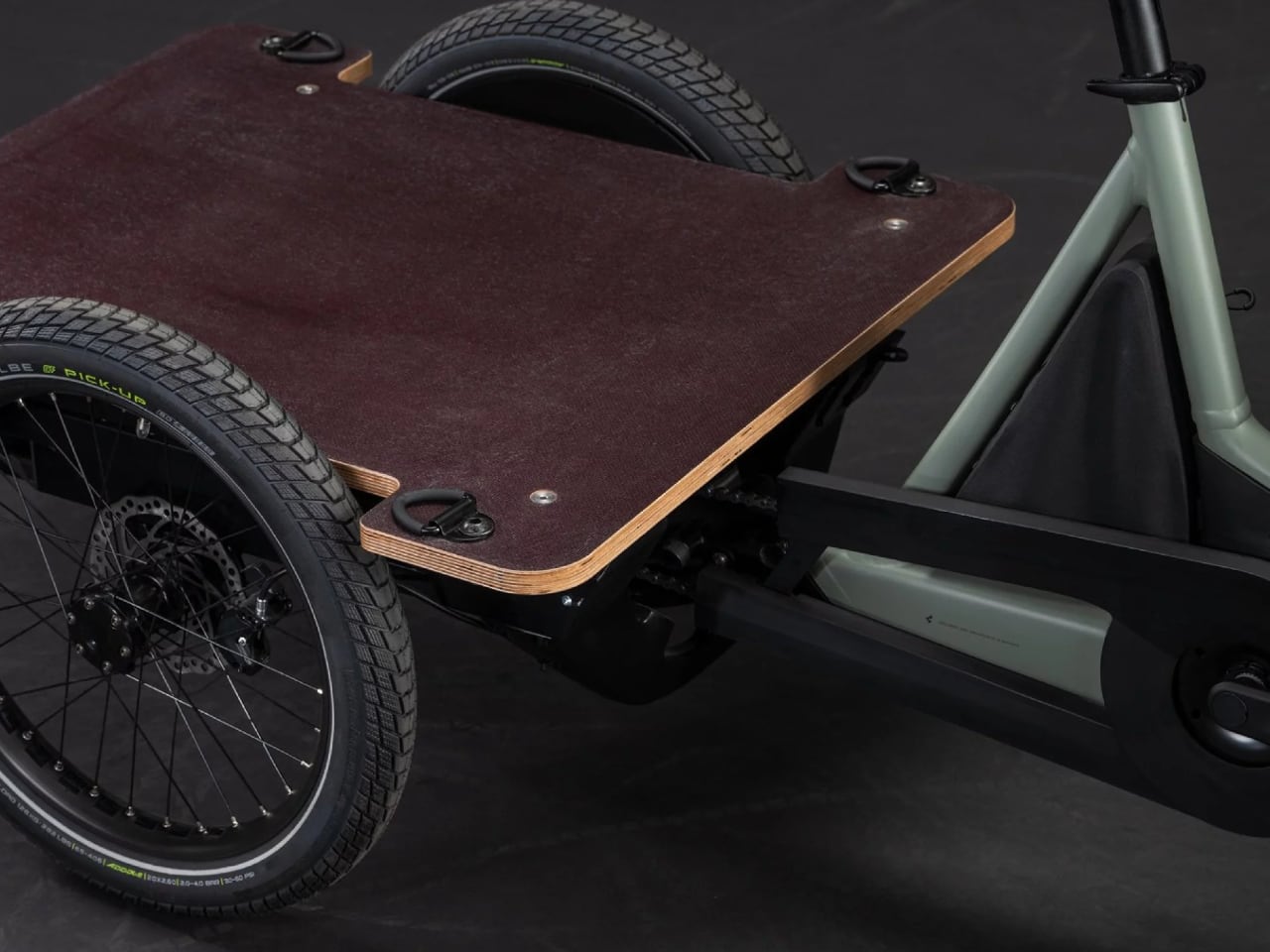
Downtube storage adds practical capacity for tools, locks, or daily essentials without eating into your primary cargo platform. The optional front rack expands carrying capability further for riders who need maximum versatility. Every storage solution integrates cleanly rather than looking bolted on as an afterthought.
The entire system feels cohesive rather than assembled from disparate components, with charging happening via a 4A charger that balances speed with battery health for daily-use vehicles. The engineering reveals itself in small decisions that compound into a cohesive whole, from component selection through geometry tuning to accessory integration.
Suspension and Rolling Stock
The SR Suntour MOBIE 34 CARGO 24″ fork with 100mm of travel specifically targets cargo trike applications. City streets aren’t smooth test tracks. They’re pothole-riddled, uneven surfaces where suspension matters for rider comfort and cargo protection. The fork absorbs impacts that would otherwise transmit straight through a rigid setup, making long urban routes less punishing on your body and your cargo.
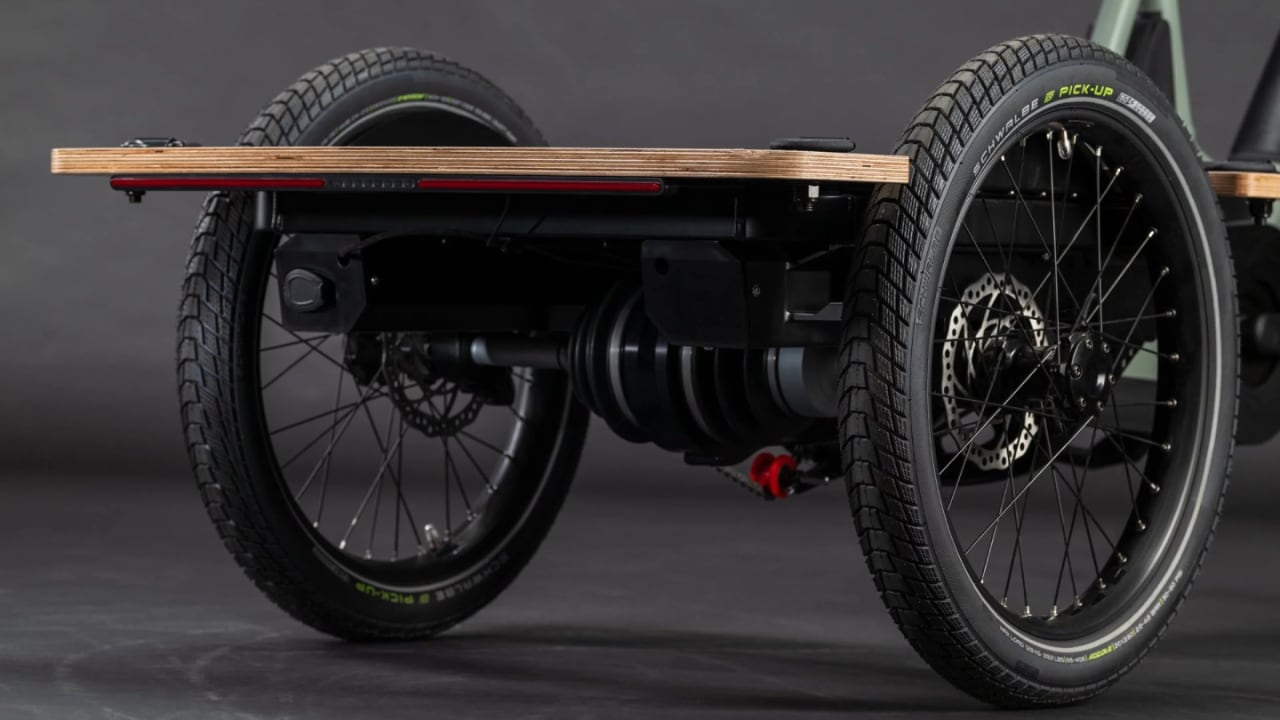
Wheel sizing splits between 24-inch front and 20-inch rear, optimizing for a low center of gravity that enhances stability while making loading and unloading easier. CUBE EX40 rims come tubeless-ready with robust spoke counts (36H front, 32H rear) designed to handle cargo loads without constant truing. Schwalbe Pick-Up Super Defense tires bring the durability and urban grip that cargo applications demand, resisting punctures and providing confident traction across varied city surfaces.
Modular Platform Philosophy and Component Integration
The Flatbed Hybrid 750 establishes modular urban mobility as a legitimate design language. That open platform invites iteration and customization in ways that closed cargo boxes actively prevent. A food truck operator sees space for a custom coffee cart build. A mobile repair business sees a rolling workbench. Families see grocery capacity and weekend adventure potential. Each vision works because the platform doesn’t impose a singular use case.
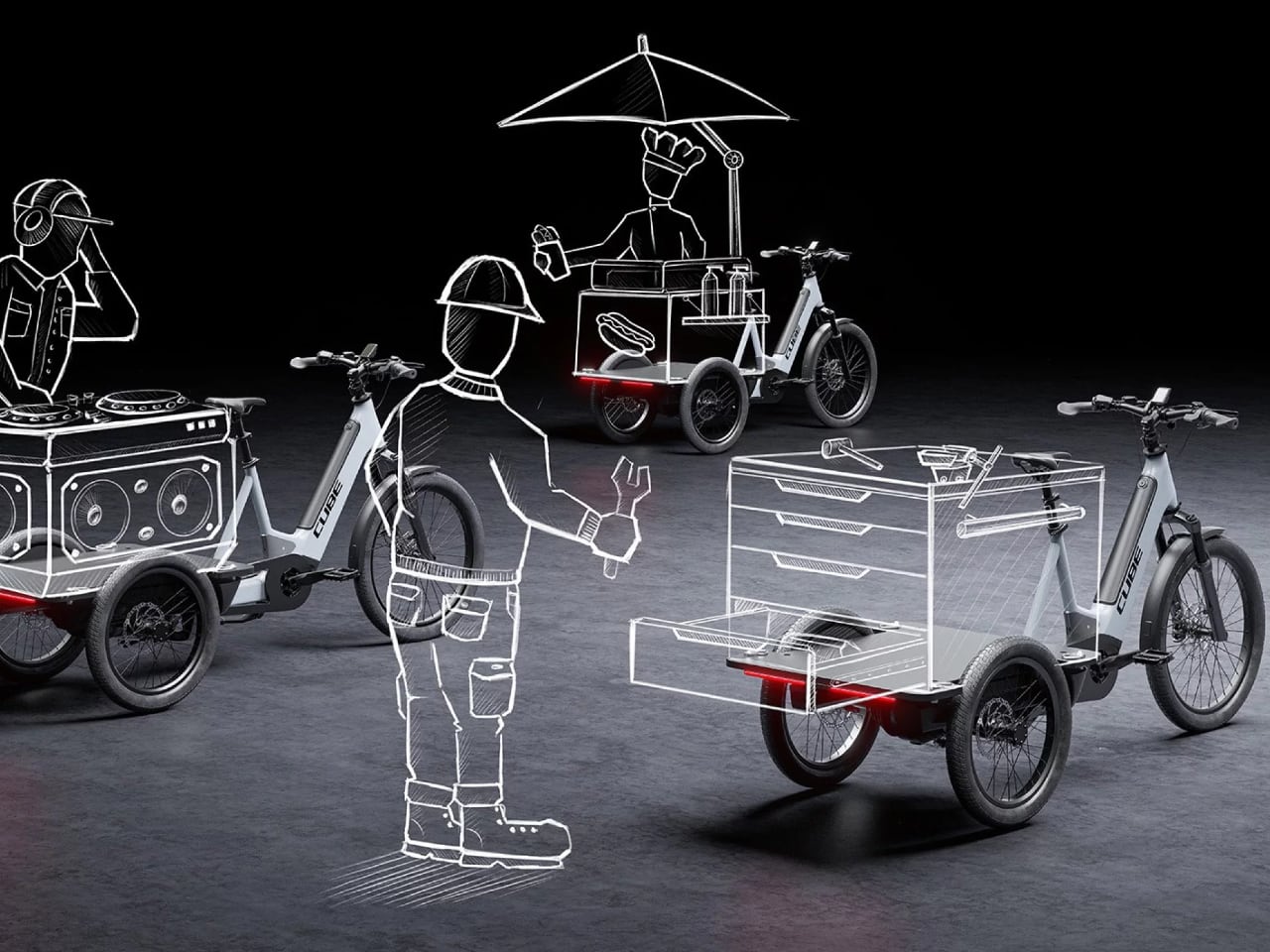
The swampgrey and reflex colorway keeps the aesthetic modern and understated, letting custom cargo solutions provide the visual personality rather than forcing the bike itself to shout for attention. It’s the industrial design equivalent of a well-designed neutral backdrop that makes everything you place on it look better.
ACID components throughout the finishing kit (grips, lights, mudguards, storage options) create an ecosystem of compatible accessories. You’re not hunting through third-party catalogs hoping for fitment compatibility. The system is designed to expand and adapt as needs change. Tektro Auriga Twin+ hydraulic disc brakes include a parking lock feature that adds crucial safety when stopped for loading, unloading, or temporary parking on inclines. All-weather reliability comes standard, recognizing that urban utility vehicles can’t take weather days off.
Enviolo Cargo shifters deliver stepless gear transitions designed specifically for loads, with no hunting for the right gear or worrying about shifting under torque. You adjust continuously as terrain and load demand, keeping power delivery smooth and intuitive. It’s the kind of component choice that reveals thoughtful system integration rather than spec-sheet box-checking. The entire drivetrain recognizes that cargo cycling demands different performance characteristics than recreational riding or commuting.
The step-through design removes the athletic barrier that traditional bike frames create. You don’t need to swing your leg over a high top tube while managing cargo or wearing work clothes. You step through, adjust the seat if needed, and go.
Universal Access for Shared Urban Futures
The adjustable geometry and intuitive controls make this genuinely shareable across families, businesses, or community programs. There’s no specialized training required. If you can ride a bike, you can ride this. The parking brake, integrated lights, bell, and mudguards handle the practical details that separate concept vehicles from daily-use tools. Cube positions this within their broader cargo ecosystem alongside Family Hybrid and Cargo Hybrid configurations, recognizing that urban mobility needs vary. The Flatbed version specifically targets the blank-canvas modularity that businesses and adaptable use cases require. It’s futureproofed not through tech features that will age, but through physical adaptability that responds to changing needs over years of use.
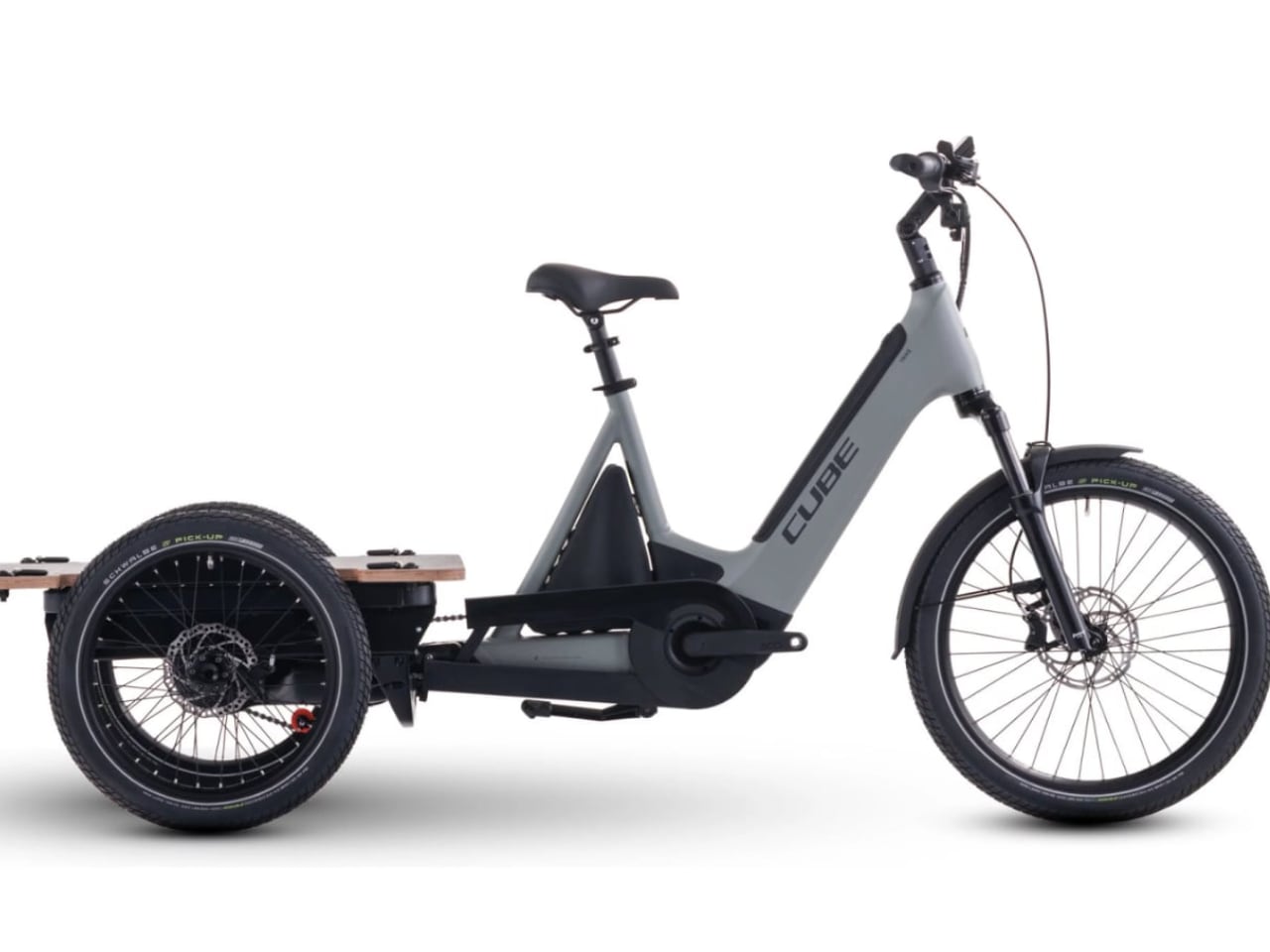
The Trike Flatbed Hybrid 750 proves that cargo capacity and bicycle agility aren’t mutually exclusive when you engineer the solution correctly. Tilting technology, modular design, and purpose-built components create a platform that adapts to urban life rather than forcing urban life to adapt to it.
The post The Cube Trike Flatbed Hybrid 750 Redefines Urban Cargo with Tilting Technology first appeared on Yanko Design.